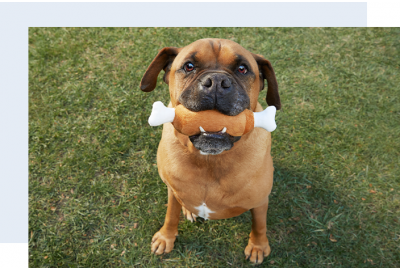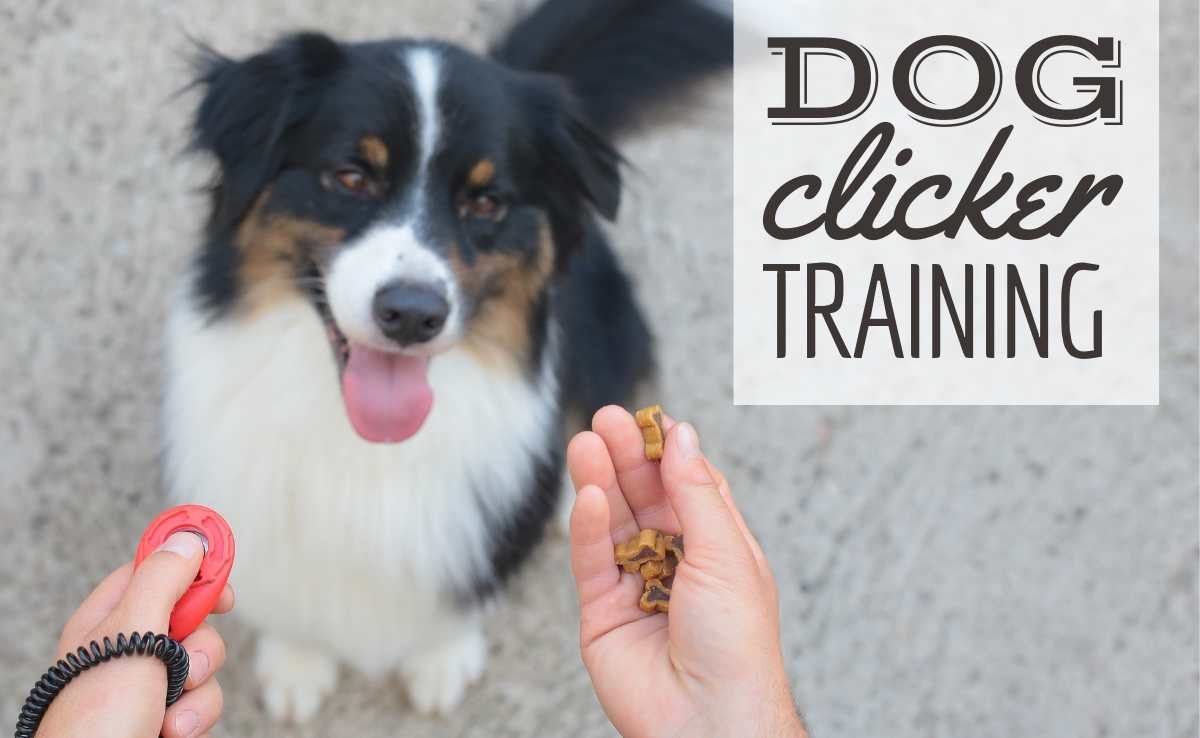
There are a few things you should remember when housetraining your puppy. Your puppy will be able to understand your words and voice if you use your voice. A six-month old puppy can hold urine for six hour. Your pup may not be as understanding. Remember that puppies have tiny bladders. This means that they can't understand whole sentences and commands.
It will be difficult when you first train your puppy. While patience is essential, consistency is key. You should immediately take action if your puppy bites anyone. You can say "Ow!" to your puppy if it bites you. Move on if your puppy bites you. This will quickly teach your dog that this behavior is not acceptable. This will show your puppy that biting doesn't work.

Hands-on training is also a great way to train a puppy. When you have to do something, your puppy should be able for you to reach out to you. It is vital as nervous puppies are more likely than others to become anxious. Another tip for successfully housebreaking a puppy is to take the food out of your hands gently. Avoid jumping and nipping while handling food.
Do not limit the training of your puppy to one room or corner in your yard. Your puppy should be trained in a variety of environments. You can expose your puppy to other distractions by changing the location. Your puppy should be rewarded for each time he eliminates in noisy places, such as the kitchen or bedroom. You can train your dog to eliminate outside. This will make it less likely that he avoids the same area, which can reduce accidents.
Besides ensuring that your puppy understands your commands, it's also essential to make training a positive experience. Instead of punishing and yelling at your puppy, you can reward him with praise, affection, and hugs. If your puppy does not respond to your commands, the dog will begin to associate them with negative feelings. Your words and tone should be emphasized, but you should also encourage your puppy with gestures.

A key element of a successful training campaign is rewarding your dog for good behavior. Dogs are highly motivated by praise and food. Giving your dog treats to reward them for their good work will set you up for a happy and healthy future. You can make your puppy worse by correcting bad habits. It is better to train your puppy immediately than to wait until it gets worse.
FAQ
Do I decide to get a dog or a cat?
It all depends on who you really are. Some people like kittens while others prefer puppies.
But, in general, puppies tend to be more active and playful. Kittens tend to be very gentle and sleep a lot.
Both types require a lot from their owners. They will grow up quickly and need a lot of care.
They will also require regular medical checkups. This means that you will have to spend some time with them at the vet.
How to feed a pet.
Dogs and cats eat four times a day. Breakfast is usually dry kibble. Lunch usually consists of some type of meat such as chicken or beef. Dinner is typically a variety of vegetables such as broccoli and peas.
Cats may have different dietary preferences. Canadian foods should be included in their diet. These include tuna, salmon, sardines, and chicken.
It is possible for your pet to enjoy fruits and veggies. They shouldn't be fed too often. Cats are more likely to get sick when they eat too much.
Your pet should never be allowed to drink water straight from the faucet. Instead, let your pet drink water from a bowl.
Make sure your pet gets enough exercise. Exercise will help him lose weight. It keeps him healthy.
After you have given your pet food, clean up the dishes. This will keep your pet safe from getting infected with bacteria.
Brush your pet often. Brushing dead skin cells can cause infection.
Brush your pet at least twice a week. Use a soft bristle brush. A wire brush is not recommended. You can cause damage to your pet's teeth.
When your pet eats, be sure to supervise him. He should be able to properly chew his food. He might swallow pieces of bone if he doesn’t.
Keep your pet away from garbage cans. This could cause serious health problems for your pet.
You should never leave your pet in an enclosed area. This applies to hot tubs, boats, cars, and other enclosed spaces.
What are the things you should consider when buying a pet?
You must first consider what kind lifestyle you wish for yourself, your family, and your friends. Do you have children? How many children do you have? How old are they now? Are there any special dietary requirements for them?
Do you have any allergies? Is there anything you need to know more about your pet
Once you have answered these questions, consider whether or not you are looking for an active companion dog, a calm cat or a house-trained feline.
If you are thinking about adopting a puppy, be sure to go to a shelter or rescue group to get to know them.
You should also check to see if the animal is vaccinated for rabies and other diseases.
The owner should also be asked if the animal will be taken care of while you're away. This will ensure that you don't have to worry about leaving the pet alone.
Keep in mind that pets are part and parcel of your family.
What are the symptoms of a sick dog?
Several symptoms indicate your dog is sick. Symptoms include:
-
Vomiting
-
Diarrhea
-
Lethargy
-
Fever
-
Weight loss
-
You will feel less hungry
-
Coughing
-
Difficulty breathing
-
Bleeding from behind the nose
-
Urine or stool contaminated with blood
These are only a few examples. Your vet will be able to tell you what to watch out for.
What are the responsibilities and responsibilities of pet owners?
An owner of a pet must love their pet unconditionally. They must ensure that their pet has all the basic needs met, including shelter, water, and food.
They must also teach their pets how to behave. You should never neglect your pet.
He should be responsible enough to clean up after it.
How to Make Your Pet Smile
Pet owners often wonder how to make their pets happy. Pet owners often buy toys, treats, or clothes for their pets. This might not work for all pets, as some pets may not like certain items. Some dogs, for example, can't bear sweaters.
Before you buy anything for your pet, find out why. You might find that your pet likes different types of food than you. You might find that he dislikes shoes.
You can also play games with your pet. You can use a ball or a frisbee. Toss it around. You can also just throw it in the air, and watch it chase down. This makes you both laugh. It's both relaxing and enjoyable.
A bath is also a good idea for your pet. Bathing helps remove dead skin cells from his coat. It makes him smell nice.
It is also vital that your pet stays healthy. Don't allow him to eat junk foods. Instead, feed him high-quality food. You should also make sure he gets plenty of exercise. You can take him out for a stroll or play fetch.
Spending time with your pet is a great way to bond. Many pets enjoy spending time with their owners.
Finally, love your pet unconditionally. Never yell at, hit or scold your pet. Be patient with him. Be patient with him.
Statistics
- Monthly costs are for a one-year-old female mixed-breed dog and an under one-year-old male domestic shorthair cat, respectively, in excellent health residing in Texas, with a $500 annual deductible, $5,000 annual benefit limit, and 90% reimbursement rate. (usnews.com)
- A 5% affiliation discount may apply to individuals who belong to select military, law enforcement, and service animal training organizations that have a relationship with Nationwide. (usnews.com)
- * Monthly costs are for a 1-year-old female mixed-breed dog and a male domestic shorthair cat less than a year old, respectively, in excellent health residing in Texas, with a $500 annual deductible, $5,000 annual benefit limit, and 90% reimbursement rate. (usnews.com)
- It is estimated that the average cost per year of owning a cat or dog is about $1,000. (sspca.org)
- It's among a relatively few companies that provide policies with a full (100%) coverage option, meaning you are not responsible for any co-payment of bills. (money.com)
External Links
How To
How to train a cat for a pet
You need to first learn about the type of cat you want to train. Cats possess complex brains. Cats are highly emotional and intelligent. It is important to understand your cat's personality in order to ensure that he/she behaves well. You need to be able to manage your cat properly.
It is important that cats remain independent. They don't like being told "no." You may be angry if they tell you "no". This is why you should never punish your cat for doing something wrong. Although your cat deserves love and affection from you, it doesn't mean that you should treat him/her as a human being.
If you suspect that your cat may have some issues, then it is best to work together to fix them. Talk calmly to your cat. You should not yell at them/her. It can make your cat feel awful if you yell at her/him. Your cat cannot be forced to eat. Sometimes your cat will not eat what you offer. If this happens, it is time to give treats. However, don't over-indulge as this could lead you to overeating.
Your cat should be kept clean at all times. You should wash your cat every day. Use a wet towel to clean off dust and dirt. Verify that your cat does not have fleas. Flea bites may cause skin irritation or allergies. Flea bites can cause severe skin irritation so you need to use a flea shampoo.
Cats are social animals. Cats enjoy being with other people. You should spend quality time together with your cat. Play with your cat, play with him/her and give him/her a bath. These activities will make your cat happy.
Start training your cat at an early age. When your kitten is just two weeks old, you should begin training him/her. It is best to start training your cat at three months of age. Your cat will be fully grown at this age and ready to learn new skills.
When you show your cat tricks you must explain every step. When teaching your cat how to sit, for example, show it the chair first. Then you will reward your cat with a treat and say "sit". Continue this process until your cat understands.
Remember that cats are smart animals. Cats can quickly figure out how they should perform tasks. However, they require patience as well as persistence. It is unrealistic to expect your cat can master a task immediately. Give your cat plenty of practice before giving up.
Keep in mind that cats come from the wild. They are naturally curious and playful. If your cat runs free, it's possible for him/her to accidentally knock objects over. To avoid accidents, you should place your cat in a safe area where he/she won't hurt himself/herself.